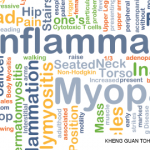
Dr. Holers
Dr. Holers also sees the question of antibody development as a key question moving forward. “Is there epitope spreading such that there is cross-reactivity between citrullinated target proteins/antigens and then the PADs themselves?” he asks. Through this process, anti-PAD4 antibodies may develop as T and B cells develop immune responses to new epitopes through their association with the initial primary disease epitopes.2
Dr. Holers notes it would also be interesting to explore if people with PAD autoantibodies might more favorably respond to a group of drugs currently under development, PAD inhibitor drugs.
Currently, PAD antibody tests are not available for clinical use, although industry is working on developing tests that might eventually become commercially available. Potentially, these might have value as prognostic assays. “Say you have PAD4 autoantibodies and also PAD3 cross-reactivity; that would help to stratify your risk of severe disease. Throwing in PAD2 antibody testing might give you a different piece of information,” Dr. Darrah speculates.
Although the research is promising, more work needs to be done to demonstrate clinical utility.
Ruth Jessen Hickman, MD, is a graduate of the Indiana University School of Medicine. She is a freelance medical and science writer living in Bloomington, Ind.
References
- Darrah E, Yu F, Cappelli LC, et al. Association of baseline peptidylarginine deiminase 4 autoantibodies with favorable response to treatment escalation in rheumatoid arthritis. Arthritis Rheumatol. 2019 May;71(5):696–702.
- Reyes-Castillo Z, Muñoz-Valle JF, Llamas-Covarrubias MA. Clinical and immunological aspects of anti-peptidylarginine deiminase type 4 (anti-PAD4) autoantibodies in rheumatoid arthritis. Autoimmun Rev. 2018 Feb;17(2):94–102.
- Fox DA. Citrullination: A specific target for the autoimmune response in rheumatoid arthritis. J Immunol. 2015 Jul 1;195(1):5–7.
- Harris ML, Darrah E, Lam GK, et al. Association of autoimmunity to peptidyl arginine deiminase type 4 with genotype and disease severity in rheumatoid arthritis. Arthritis Rheum. 2008 Jul;58(7):1958–1967.
- Halvorsen EH, Pollmann S, Gilboe IM, et al. Serum IgG antibodies to peptidylarginine deiminase 4 in rheumatoid arthritis and associations with disease severity. Ann Rheum Dis. 2008 Mar;67(3):414–417.
- Zhao J, Zhao Y, He J, et al. Prevalence and significance of anti–peptidylarginine deiminase 4 antibodies in rheumatoid arthritis. J Rheumatol. 2008 Jun;35(6):969–974.
- Kolfenbach JR, Deane KD, Derber LA, et al. Autoimmunity to peptidyl arginine deiminase type 4 precedes clinical onset of rheumatoid arthritis. Arthritis Rheum. 2010 Sep;62(9):2633–2639.
- O’Dell JR, Mikuls TR, Taylor TH, et al. Therapies for active rheumatoid arthritis after methotrexate failure. N Engl J Med. 2013 Jul 25;369(4):307–318.
- Darrah E, Giles JT, Davis RL, et al. Autoantibodies to peptidylarginine deiminase 2 are associated with less severe disease in rheumatoid arthritis. Front Immunol. 2018 Nov 20;9:2696.
- Darrah E, Giles JT, Ols ML, et al. Erosive rheumatoid arthritis is associated with antibodies that activate PAD4 by increasing calcium sensitivity. Sci Transl Med. 2013 May 22;5(186):186ra65.
- Giles JT, Darrah E, Danoff S, et al. Association of cross-reactive antibodies targeting peptidyl-arginine deiminase 3 and 4 with rheumatoid arthritis-associated interstitial lung disease. PLoS One. 2014 Jun 5;9(6):e98794.

